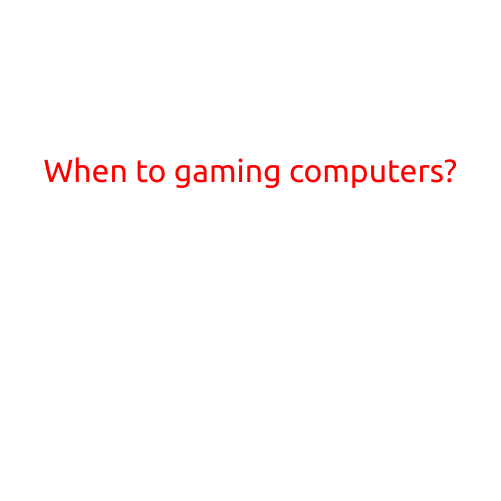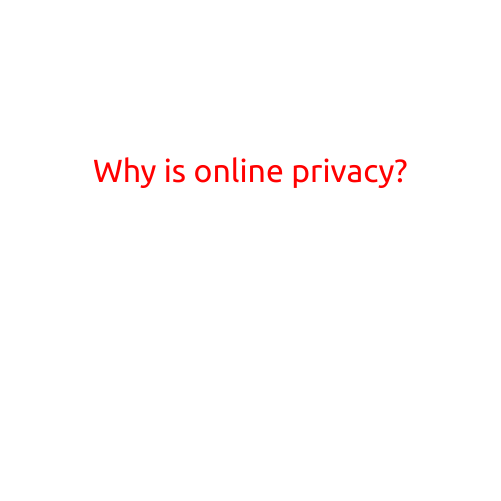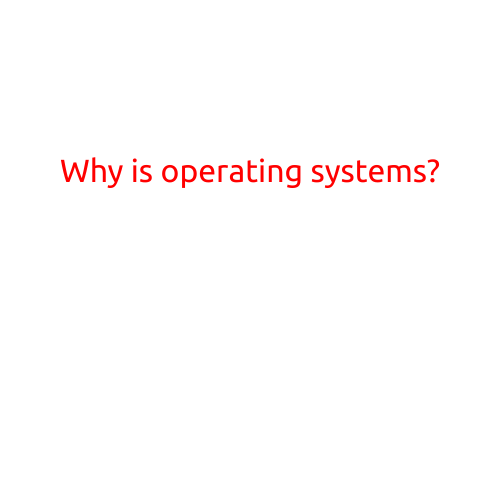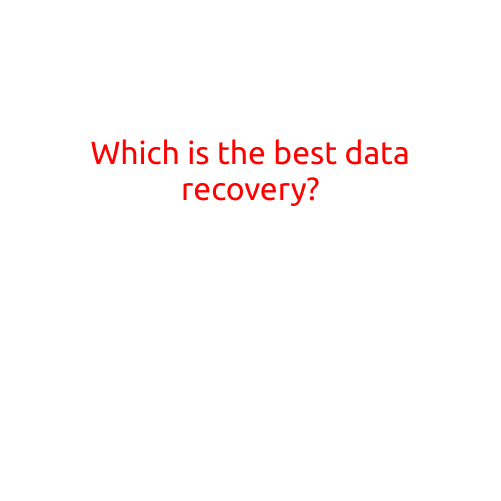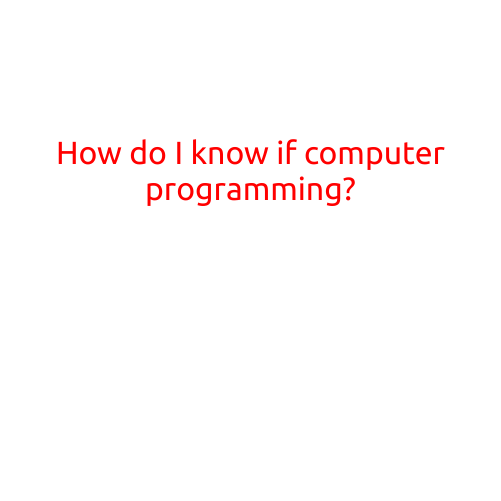
How Do I Know If I Am a Natural at Computer Programming?
Are you curious about whether you have a knack for computer programming? Do you wonder if you have what it takes to succeed in this field? As the demand for skilled programmers continues to rise, many individuals are looking for ways to determine if computer programming is the right career path for them.
In this article, we’ll explore some signs that may indicate you have a natural talent for computer programming. We’ll also discuss some ways to develop your skills and overcome common challenges.
Common Signs of a Natural Programming Ability
- You’re interested in problem-solving: Programming involves breaking down complex problems into manageable parts and finding creative solutions. If you enjoy tackling puzzles and brain teasers, you may already have the mindset of a programmer.
- You’re detail-oriented: Computers don’t tolerate sloppy code, so attention to detail is essential. If you’re meticulous and careful in your work, you’ll likely appreciate the precision required in programming.
- You enjoy learning new things: Programming is a constantly evolving field, and staying up-to-date with the latest technologies and techniques requires a willingness to learn. If you’re eager to learn new skills and expand your knowledge, you may be well-suited for a career in programming.
- You’re comfortable with logic and reasoning: Programming involves creating logical procedures and rules for computers to follow. If you’re comfortable working with logical structures and can reason abstractly, you may have a strong foundation for programming.
- You’re interested in creating something new: Programming allows you to create something from scratch, whether it’s a game, an app, or a tool. If you enjoy bringing your ideas to life, you may find programming a fulfilling career.
Ways to Develop Your Programming Skills
- Start with the basics: Begin with simple programming languages like Scratch or Python and work your way up to more complex languages like Java or C++.
- Practice, practice, practice: Start with small projects and gradually work on more complex ones. You can also participate in coding challenges on platforms like GitHub or CodeWars.
- Join online communities: Connect with other programmers through online forums, social media groups, or local meetups. These communities can provide valuable resources, feedback, and support.
- Take an online course or attend a coding bootcamp: Structured learning environments can help you learn quickly and efficiently. Many courses and bootcamps offer hands-on training and mentorship.
- Read books and documentation: Programming involves a lot of reading and research. Stay up-to-date with the latest industry trends and developments by reading books, articles, and official documentation.
Common Challenges to Overcome
- Fear of failure: It’s normal to feel anxious about making mistakes or not meeting expectations. Practice problem-solving and focus on learning from your mistakes.
- Becoming overwhelmed: Programming involves a lot of new information and concepts. Break down complex tasks into smaller, manageable parts, and focus on one task at a time.
- Lack of confidence: Building confidence takes time and practice. Celebrate small victories and remind yourself that everyone starts somewhere.
- Difficulty with debugging: Debugging is an essential part of programming. Use online resources, tutorials, and debugging tools to help you identify and fix errors.
- Getting stuck: Sometimes, getting stuck is a normal part of the learning process. Take breaks, recharge, and come back to the problem with a fresh perspective.
Conclusion
Figuring out if you’re a natural at computer programming takes time, patience, and dedication. By recognizing common signs of a natural programming ability, developing your skills through practice and learning, and overcoming common challenges, you can determine whether computer programming is the right career path for you. Remember, programming is a skill that can be developed with persistence and hard work, even if you’re not a born programmer. So, take the leap and start your programming journey today!
